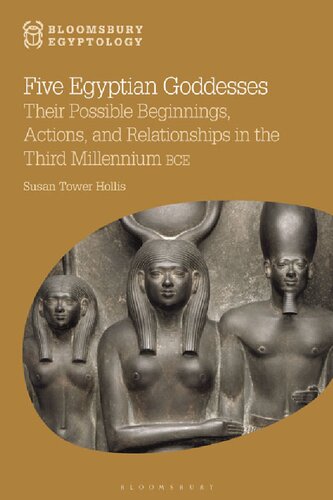

Most ebook files are in PDF format, so you can easily read them using various software such as Foxit Reader or directly on the Google Chrome browser.
Some ebook files are released by publishers in other formats such as .awz, .mobi, .epub, .fb2, etc. You may need to install specific software to read these formats on mobile/PC, such as Calibre.
Please read the tutorial at this link: https://ebookbell.com/faq
We offer FREE conversion to the popular formats you request; however, this may take some time. Therefore, right after payment, please email us, and we will try to provide the service as quickly as possible.
For some exceptional file formats or broken links (if any), please refrain from opening any disputes. Instead, email us first, and we will try to assist within a maximum of 6 hours.
EbookBell Team

0.0
0 reviewsThis volume explores the earliest appearances and functions of the five major Egyptian goddesses Neith, Hathor, Nut, Isis and Nephthys. Although their importance endured throughout more than three millennia of ancient Egyptian history, their origins, earliest roles, and relationships in religion, myth, and cult have never before been studied together in detail.
Showcasing the latest research with carefully chosen illustrations and a full bibliography, Susan Tower Hollis suggests that the origins of the goddesses derived primarily from their functions, as, shown by their first appearances in the text and art of the Protodynastic, Early Dynastic, and Old Kingdom periods of the late fourth and third millennia BCE. The roles of the goddess Bat are also explored where she is viewed both as an independent figure and in her specific connections to Hathor, including the background to their shared bovine iconography. Hollis provides evidence of the goddesses' close ties with royalty and, in the case of Neith, her special connections to early queens.
Vital reading for all scholars of Egyptian religion and other ancient religions and mythology, this volume brings to light the earliest origins of these goddesses who would go on to play major parts in later narratives, myths, and mortuary cult.